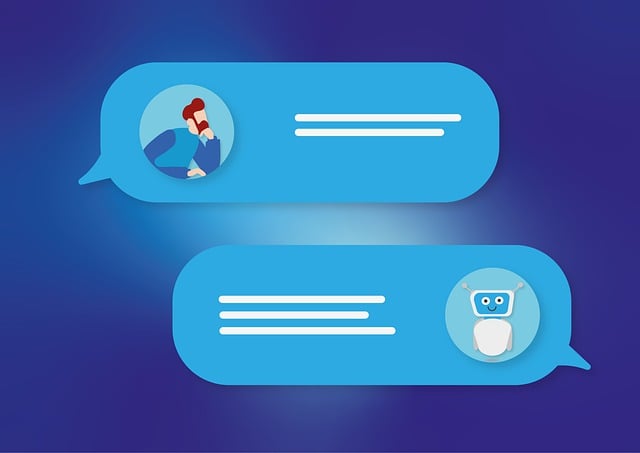The integration of AI chatbots and assistants into customer service is a significant shift in the digital era, offering instant, personalized support 24/7 through advanced natural language processing. These technologies enhance user experiences, improve operational efficiency, and allow human agents to focus on complex cases. However, ethical considerations are paramount: developers must prioritize user privacy, bias-free data and algorithms, and transparent operations to avoid data breaches, unfair treatment, and loss of public trust. Transparency, accountability, fairness, and mitigating bias in AI chatbots and assistants are crucial for long-term acceptance and success in various sectors, ensuring equitable customer service for all users.
The integration of AI chatbots and assistants into customer service has revolutionized the way businesses interact with their clients. As these technologies continue to evolve, ethical considerations become paramount. This article explores key aspects shaping the future of AI in customer service, including transparency, accountability, bias mitigation, privacy protection, and data security. Understanding and addressing these issues are crucial for building trust and ensuring equitable access to high-quality AI-driven assistance.
- The Rise of AI Chatbots and Assistants in Customer Service
- Ethical Considerations in AI Development for Customer Interaction
- Transparency and Accountability: Building Trust with AI Assistants
- Bias and Fairness: Ensuring Equitable AI Customer Service
- Privacy and Data Security: Protecting Users in the Age of AI
The Rise of AI Chatbots and Assistants in Customer Service

The rise of AI chatbots and assistants in customer service is a significant development in the ever-evolving digital landscape. These advanced technologies are transforming traditional customer interactions by offering instant, personalized, and efficient support. AI chatbots, powered by sophisticated natural language processing, can understand and respond to customer inquiries in real time, providing 24/7 availability without compromising quality.
As AI assistants integrate into various customer service platforms, they enhance the overall user experience. They can handle a wide range of tasks, from answering frequently asked questions to resolving complex issues, allowing human agents to focus on more intricate and sensitive cases. This shift not only improves operational efficiency but also fosters stronger client relationships by delivering seamless and tailored interactions.
Ethical Considerations in AI Development for Customer Interaction

As AI chatbots and assistants become increasingly integrated into customer service, ethical considerations are more vital than ever. Developers must ensure these technologies respect user privacy, prevent bias in data and algorithms, and maintain transparency in their operations. Missteps in these areas can lead to significant consequences, such as data breaches, unfair treatment, and a loss of public trust.
Designing AI customer service with ethics in mind involves implementing robust data security measures, continually auditing algorithms for biases, and providing clear explanations of how the AI functions. By adopting these practices, developers can create AI assistants that serve users equitably and responsibly, shaping a future where human-AI interactions are guided by principles of fairness, safety, and accountability.
Transparency and Accountability: Building Trust with AI Assistants

As AI chatbots and assistants become more integrated into our daily lives, ensuring transparency and accountability becomes crucial for building trust with users. AI customers expect to know how these systems operate, make decisions, and handle their data. Developers must design these assistants with clear communication mechanisms in place, explaining complex algorithms and potential biases openly. Transparency allows users to understand the capabilities and limitations of AI, fostering a sense of comfort and security.
Moreover, accountability measures are essential to ensure that AI assistants act responsibly and ethically. This includes implementing robust oversight mechanisms, regular audits, and clear guidelines for handling user complaints. When users interact with AI customer service representatives, they should be able to hold the technology and its creators accountable for any errors, biases, or unethical behaviors. Building trust through transparency and accountability is vital for the long-term acceptance and success of AI assistants in various sectors.
Bias and Fairness: Ensuring Equitable AI Customer Service

AI chatbots and assistants have the potential to revolutionize AI customer service, providing efficient and personalized support. However, ensuring fairness and mitigating bias in these systems is an ethical imperative. Bias can creep into AI models through biased training data or algorithms that reflect societal inequalities. This results in unfair or discriminatory outcomes, especially when interacting with diverse customer bases. For instance, an AI assistant might provide different responses to users from different cultural backgrounds due to the nuances missed in its training data.
To address this, developers must employ inclusive datasets and algorithms that consider ethical guidelines. Regular audits of AI models can help identify and rectify biases. Additionally, transparency in how these systems operate allows for public scrutiny, fostering trust. By prioritizing fairness and bias elimination, AI chatbots and assistants can deliver equitable customer service, ensuring no user is disadvantaged due to their background or identity.
Privacy and Data Security: Protecting Users in the Age of AI

In the age of advanced AI chatbots and assistants, privacy and data security have become paramount concerns. As these AI technologies integrate into various aspects of daily life, from customer service to personal assistance, they collect vast amounts of user data. Protecting this sensitive information is crucial for maintaining trust between users and developers. With each interaction, AI chatbots learn and evolve, potentially uncovering intimate details about users’ preferences, behaviors, and even emotions. Ensuring the security of this data is essential to prevent unauthorized access, misuse, or malicious activities that could compromise individuals’ privacy.
AI assistants and customer service bots must be designed with robust data protection measures in place. Encryption techniques, secure storage, and anonymization methods can help safeguard user information. Developers must also adhere to strict protocols for data collection, ensuring transparency about what data is collected, why it’s needed, and how it will be used. By prioritizing privacy and security, the development community can foster public trust and ensure that AI technologies enhance customer service while respecting individual rights in an increasingly digital world.






